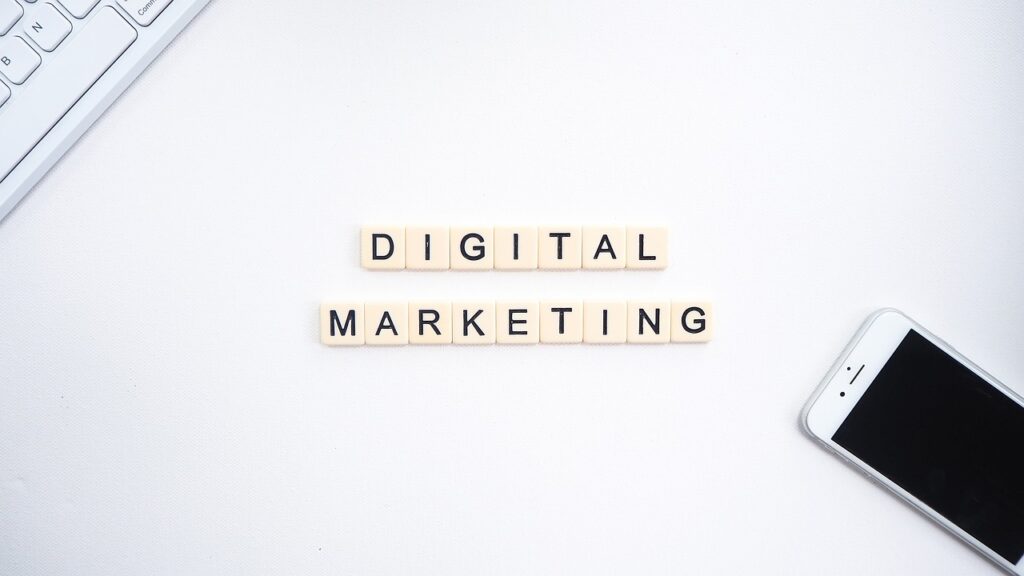Digital marketing is the cornerstone of modern business strategies, revolutionizing how companies connect with their audiences. It utilizes digital channels such as search engines, social media, email, and websites to promote products, services, or brands effectively. This comprehensive guide explores what digital marketing entails, its importance, and how businesses can use it to thrive in a competitive digital landscape.
What is Digital Marketing?
Digital marketing refers to all marketing efforts that leverage online platforms and digital technologies to connect with audiences. Unlike traditional marketing methods, digital marketing offers a data-driven approach, allowing businesses to track performance, target specific demographics, and personalize their campaigns. It encompasses a variety of strategies, from search engine optimization (SEO) and pay-per-click (PPC) advertising to email campaigns and social media engagement. The primary goal is to create value-driven interactions that convert potential customers into loyal advocates for your brand.
Why Digital Marketing is Crucial for Businesses Today
In an era where consumers increasingly rely on digital platforms for information, entertainment, and shopping, digital marketing has become indispensable. It allows businesses to meet their audiences where they are, providing opportunities for engagement and conversion. Beyond accessibility, digital marketing offers cost-effective solutions with measurable results. Businesses can analyze campaign performance in real time, adapt to trends, and achieve a higher return on investment compared to traditional advertising methods. The personalized nature of digital marketing also fosters trust and builds lasting relationships with customers.

Core Channels of Digital Marketing
Digital marketing comprises several channels, each tailored to specific objectives and audience preferences.
Search Engine Optimization (SEO)
SEO is the practice of optimizing a website to rank higher in search engine results pages (SERPs). By targeting relevant keywords and enhancing website usability, businesses can drive organic traffic and improve visibility. For example, using tools like Google Analytics helps track user behavior and refine content strategies.
Pay-Per-Click Advertising (PPC)
PPC advertising involves placing paid ads on search engines and social media platforms. Advertisers pay only when a user clicks on their ad, making it a cost-effective way to drive targeted traffic. Google Ads and Facebook Ads are popular PPC tools that provide extensive targeting options.
Content Marketing
Content marketing focuses on creating and distributing valuable content, such as blog posts, videos, and infographics. This strategy helps educate and engage audiences, positioning a brand as an authority in its industry. For instance, a fitness brand might use blog articles and workout tutorials to attract health-conscious individuals.
Social Media Marketing
Social media platforms like Instagram, LinkedIn, and TikTok are powerful tools for engaging with audiences and promoting brand messages. Social media marketing involves creating tailored content for each platform to increase reach and foster community interaction. Successful campaigns often include a mix of organic posts and paid ads.
Email Marketing
Email marketing remains one of the most effective ways to nurture leads and retain customers. Businesses can use automated workflows to send personalized messages, exclusive offers, and newsletters that keep their audience engaged. For example, eCommerce stores often use email campaigns to promote flash sales and new arrivals.
Affiliate Marketing
Affiliate marketing leverages partnerships with third-party individuals or businesses to promote products in exchange for a commission. This strategy expands a brand’s reach without the upfront cost of traditional advertising. Amazon’s affiliate program is a leading example of this approach in action.
Benefits of Digital Marketing
Digital marketing offers unparalleled advantages for businesses of all sizes. It enables precise targeting, ensuring your message reaches the right people at the right time. The ability to analyze data in real time allows for agile decision-making and continuous improvement of campaigns. Additionally, digital marketing enhances brand visibility and reputation by maintaining a strong online presence across multiple platforms. These benefits make it an indispensable tool for achieving both short-term and long-term business goals.

Emerging Trends in Digital Marketing
Digital marketing evolves rapidly, and staying ahead of trends is crucial for success. Key trends include:
- Artificial Intelligence (AI): AI tools are revolutionizing marketing with predictive analytics and personalized customer experiences.
- Voice Search Optimization: With the rise of smart assistants like Alexa and Siri, optimizing content for voice search is becoming essential.
- Video Marketing: Short-form videos on platforms like YouTube Shorts and TikTok are capturing audience attention like never before.
- Interactive Content: Polls, quizzes, and augmented reality (AR) experiences engage users and provide memorable brand interactions.
Conclusion
Digital marketing is an ever-evolving field that empowers businesses to connect with their audiences, drive engagement, and achieve their goals. By leveraging the right mix of strategies—SEO, PPC, content marketing, social media, and more—businesses can create impactful campaigns that resonate with their target audience. Whether you’re a small business owner or a large corporation, embracing digital marketing is key to thriving in today’s competitive landscape.

